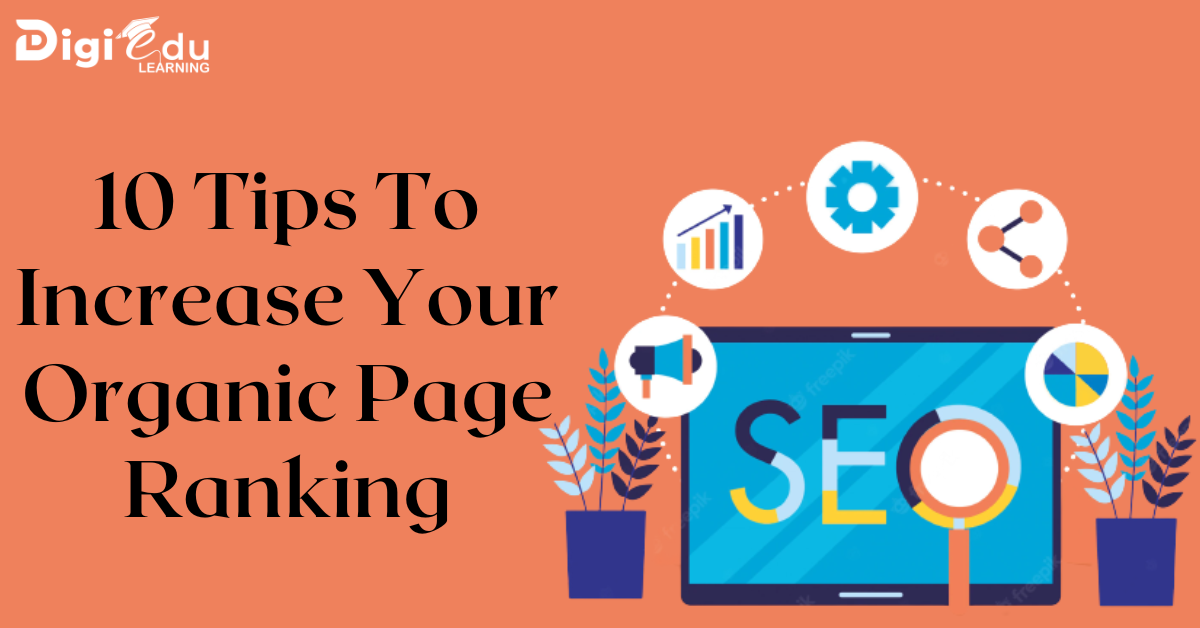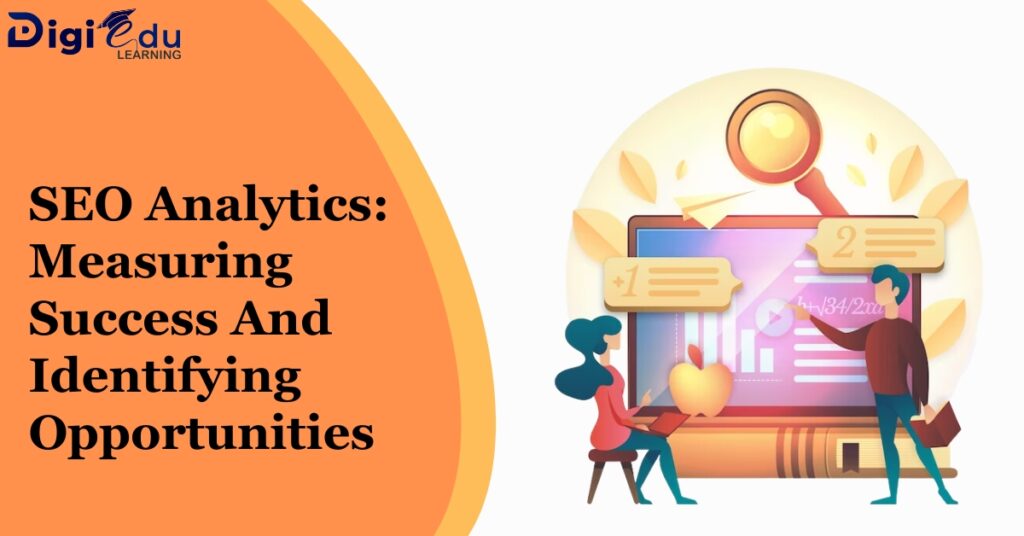If you have an organic page on the first page of Google, congratulations! You’re doing something right. But if you’re like most people, it can be difficult to keep up with all the changes in search engine algorithms and website optimization techniques. The good news is that there are many ways to increase your organic page ranking: from creating better content to making sure that your site looks good (and isn’t full of distracting ads). In this article, I’ll share 10 tips for improving your organic ranking so that users see more results when they enter keywords into their browsers.
#1 Make Sure Your Content Is What Customers Are Searching For
- Make sure that you’re providing useful information to your readers and not just repeating the same old thing over and over again.
- If you’re writing an article or blog post, make sure it’s well-written and structured in a way that makes sense to readers who aren’t necessarily familiar with SEO techniques (and even some who are). The last thing you want to do is confuse them by using terms like “keyword stuffing” or “content marketing” without explaining why they’re important!
#2 Use Specific Keywords When Writing Content
- Make sure to use the right keywords in your copy, so that it’s relevant and useful for the user.
- Use terms related to your business or industry, such as “car repair” or “restaurant”. You can also use long-tail keywords (those with fewer than 100 results). For example, if you run an auto repair shop in New York City, you might write about how to fix cars so people who are looking for help will find your website more easily than those who search for “auto mechanic near me.”
#3 Avoid Keyword Stuffing
Keyword stuffing is a black hat SEO technique that can lead to the downfall of your organic page ranking. This practice is nothing more than the overuse of keywords on a page, which will be detected by Google bots and you’ll lose out on organic traffic from search engines.
When you’re trying to increase your organic page ranking, avoid keyword stuffing at all costs because it’s never good for any site’s reputation or rankings in general.
The more people who read your content, the more traffic your website will receive. More traffic means more pageviews, which means more revenue for youIt’s important to note that Google has a sophisticated algorithm that detects keyword stuffing. This means that if your site is constantly trying to stuff keywords into content, you’ll find yourself on the receiving end of some hefty penalties and penalized rankings. Keep in mind that there are other ways to increase your organic page ranking than just stuffing keywords.
#4 Write Lengthy Blogs And Articles Rather Than Short, Simple Posts
Longer content is more likely to be read by a wider audience, shared on social media and linked from other sites.
It’s also more likely that search engines will index your page if you write lengthy blogs and articles rather than short, simple posts.
This means that you’ll get more traffic from search engines, which can bring more visitors to your site.
#5 Publish Regularly To Demonstrate That You’re A Reliable Source Of Information.
Publishing regularly helps you to build trust with your readers, which increases the likelihood that they will come back for more. It also builds authority in your niche and helps spread the word about what’s going on around you—all of which leads us to Traffic! If people find out about your site through social media or other channels, it’s much easier for them to visit and check out what else there is on offer at Aardvark Digital Marketing Solutions Inc (that’s me).
For example, if you publish a post every Monday through Friday and someone sees it on Facebook, they have the option of reading it right there or saving it for later by clicking on the link. If they click on the link, they’ll be taken to your blog where they can find other posts that may interest them—including ones that might be relevant to their business.
#6 Fill Out Your Meta Descriptions With Relevant Keywords
- Use relevant keywords in your meta descriptions.
- Keep it short and sweet, but include enough information to entice a visitor to click through.
- Use the keywords in the first sentence or two of your meta description, as well as throughout your paragraph if possible.
In general, don’t use any keywords that aren’t relevant to what you’re trying to promote on this page (such as “organic food”).
#7 Place The Most Important Keywords At The Beginning Of Your Headlines And Within The First Paragraph Of Your Blog Or Article
It’s important to place the most important keywords at the beginning of your headlines and within the first paragraph of your blog or article. You can also use them in subheadings and in the body text as well.
For example:
1. “How did I quit my job and become an entrepreneur”
2. “The best way to promote your business online”
3. “What’s wrong with this picture?”
#8 Keep Your Website’s Design Clean And Straightforward
- Avoid clutter.
- Use a clean color scheme (black, white, and gray are great options).
- Use a clear font that’s easy to read, like Arial or Helvetica Neue with a 12-point size (if you’re not sure what size is best for your site, see our guide here). Also, make sure all links work properly by keeping them short enough so they don’t get cut off by other text on the page; if a link doesn’t redirect correctly when clicked on then it could be confusing for visitors who might think they’ve missed something important!
#9 Optimize Your Page’s Title Tag, Which Will Improve Its SEO Ranking.
Your title tag is the most important part of your page’s SEO ranking. It should be between 60 and 70 characters long, with the target keyword in it at least once. If you don’t have the time to optimize your site for search engines or if you’re just not sure how to do it, consider hiring a professional.
Additionally, make sure that you include keywords in all of your meta descriptions (the text below each image) so people can find what they’re looking for quickly!
#10 Add Relevant Internal Links To Your Site To Boost SEO Ranking
Internal links are the links on your website that point to other pages on your website. They help search engines understand the importance of different pages on your site, which can increase their ranking in search results.
You can use internal links to help increase your organic page ranking by linking from relevant pages within a content section, or from other sections of your site that are related to each other. For example: if you have an article about “How To Grow Organic Vegetables” and another article about “How To Grow Organic Vegetables In Your Backyard” then those two sections should link together through one common topic (i.e., growing vegetables). This way users who click through these two articles will see one main idea flowing throughout them both instead of getting lost between unrelated topics with no connection at all!
If You Follow These Tips, You’ll Be On Your Way To Higher Organic Page Rankings
If you follow these tips, you’ll be on your way to higher organic page rankings. The more of them that you follow and the longer your content runs for on each of these platforms (which is another great way to boost your SEO), the higher your organic page ranking will be.
And if that’s not enough for you? You can also use social media to increase the number of people who see what you’re doing for their businesses or personal brands by sharing it with friends and followers who may be interested in reading about it (and then passing it along). Or if someone else has posted something similar but better than yours—maybe even better than theirs—you should definitely reach out with an email asking them why they think so highly of themselves!
That being said: There are many ways in which paid advertising can help improve both organic search engine results AND backlinks from other websites into our own pages as well as those who link back towards them because they trust us after seeing other quality content first hand.”
Conclusion
I hope these tips have been helpful and that you’ve found a few things that work for you. The most important thing is to remember to stay positive! Good luck with your quest for the best organic page ranking!






